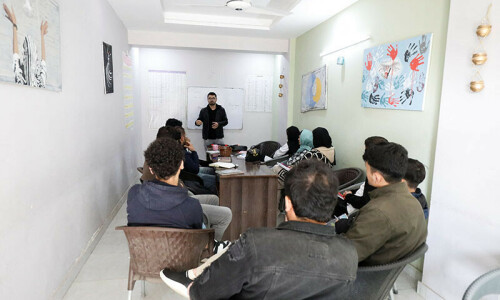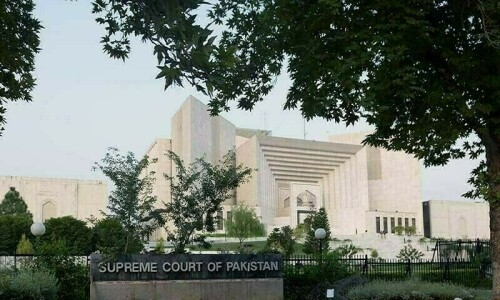WASHINGTON: Supporters of the Taliban and Al Qaeda in Afghanistan have been getting US military contracts, and American officials are citing “due process rights” as a reason not to cancel the agreements, according to an independent agency monitoring spending.
The US Army Suspension and Debarment Office has declined to act in 43 such cases, John Sopko, the Special Inspector General for Afghanistan Reconstruction, said on Monday in a letter accompanying a quarterly report to Congress.
“I am deeply troubled that the US military can pursue, attack, and even kill terrorists and their supporters, but that some in the US government believe we cannot prevent these same people from receiving a government contract,” Sopko said.
The 236-page report and Sopko’s summary provide one of the watchdog agency’s most critical appraisals of U.S. performance in helping to build a stable Afghanistan as the Pentagon prepares to withdraw combat troops by the end of next year.
“There appears to be a growing gap between the policy objectives of Washington and the reality of achieving them in Afghanistan, especially when the government must hire and oversee contractors to perform its mission,” said Sopko, whose post was mandated by Congress.
The US has 60,000 troops in Afghanistan, with plans to reduce the number to 34,000 by February. President Obama hasn’t decided how many to keep in the country after next year to train Afghan forces and engage in anti-terrorist missions.
Sopko expressed pessimism that the US can maintain effective oversight of billions of dollars in reconstruction spending as forces are withdrawn. The Obama administration has requested $10.7 billion in such funding for fiscal 2014 to cover projects from improving local government to building roads and schools. “Unless the US government improves its contract-oversight policies and practices, far too much will be wasted,” Sopko wrote.
According to the report, Sopko’s agency “has found it impossible to confirm” the number of contracts awarded in a $32 million programme to install barricades, bars or gratings in culverts at about 2,500 Afghan locations to prevent insurgents from placing roadside bombs. The explosives are the biggest killer of US and Afghan troops.
The policy to create an effective Afghan army, which has 185,287 troops, “will remain hollow unless Washington pays equal attention to proper contracting and procurement activities to sustain those forces,” Sopko said.
He said that he is “well aware of the wartime environment in which contractors are operating in Afghanistan, but this can neither explain the disconnect nor excuse the failure”. As of May 31, the US had committed $30 billion for contracts to build, train and sustain the Afghan army. Sopko said he has witnessed the failings personally during his first year as inspector general, including 50 meetings he and his staff attended during his last trip to Afghanistan.
As of March, 40,315 of the personnel working under Pentagon contracts in Afghanistan, or about 37 per cent, were Afghan locals, according to the report.
Regarding the 43 cases of contractors with militant connections, Sopko said the US army should “enforce the rule of common sense” in its suspension and debarment programme. “They may be enemies of the United States, but that is not enough to keep them from getting government contracts,” according to the agency’s report.
The army’s procurement-fraud branch reviewed the 43 cases late last year, Matthew Bourke, a service spokesman, said in a statement. The reviewers “did not include enough supporting evidence to initiate suspension and debarment under federal acquisition regulations,” he said.
George Wright, another army spokesman, said by email that cutting off the contracts based only on information from Sopko’s office “would fail to meet due-process requirements and would likely be deemed arbitrary if challenged in court”.
Sopko said the US army “appears to believe that suspension or debarment of these individuals and companies would be a violation of their due-process rights if based on classified information” or on Commerce Department reports.
By arrangement with Washington Post-Bloomberg News Service















































Dear visitor, the comments section is undergoing an overhaul and will return soon.